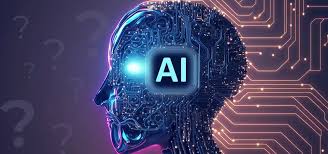Artificial Intelligence (AI) is an transformative technology that is changing industries, enhancing daily life, and driving innovation across various areas. At its core, artificial intelligence (umělá inteligence) is the term used to describe the creation of computers that can perform tasks that usually require human expertise. These include learning, reasoning, problem-solving perception, as well as language understanding.
Types of AI
AI is broadly classified into two kinds: Narrow AI and General AI. Narrow AI, also known as Weak AI, is designed for specific tasks such as voice recognition, recommendation systems, or autonomous cars. The systems are operated with a limited range of capabilities and excel in their specific capabilities, but they are not able to generalize beyond their programmed capabilities. General AI, or Strong AI, represents a more advanced form of AI, with the capability to understand how to learn, apply, and use intelligence to a variety of tasks on a human scale. Currently, General AI remains largely conceptual and is the subject of ongoing research.
Key Components of AI
Machine Learning (ML) is a part of AI it involves training algorithms using large data sets to identify patterns and then make predictions or take decisions without explicit programming. Techniques like unsupervised learning, supervised learning as well as reinforcement learning, are essential to ML.
Natural Language Processing (NLP): This branch of AI concentrates on the interaction between humans and computers. NLP allows machines to comprehend interpret, recognize, and produce human language, which is a prerequisite for applications such as chatbots, speech translation, and sentiment analysis.
Computer Vision The field of Computer Vision deals with the way computers process and make sense of visual information from the world. Computer vision is utilized to recognize faces, objects detection, and autonomous driving.
robotics AI can be crucial to robotics, as it lets robots perform complicated tasks in a controlled manner. Robotics integrates AI together with engineering mechanics to produce machines capable of tasks ranging from exploration to manufacturing.
Applications of AI
AI’s applications are vast and numerous. In healthcare, AI algorithms assist in diagnosing ailments, adjusting treatments, and predicting the outcome of patients. In the finance industry, AI is used for fraud detection, algorithmic trading, as well as customer support. Everyday, AI creates virtual assistants like Siri and Alexa, enhances online shopping experiences with personalized recommendations, and optimizes logistics and supply chain management.
Ethical Considerations
As AI continues to develop, ethical considerations are paramount. Concerns like privacy of data as well as biases in algorithms, job displacement, and the potential for misuse of AI technology must be addressed. Making sure that transparency, accountability, as well as fairness within AI applications is vital in reducing the risks and increasing confidence with AI applications.
Future Prospects
In the future, AI holds immense potential. Continuous advancements in AI research will provide superior, efficient and integrated solutions in different domains. As AI technology advances is certain to play a central role for shaping the next phase of our society, changing the way we work, live, and interact with the world around us.



